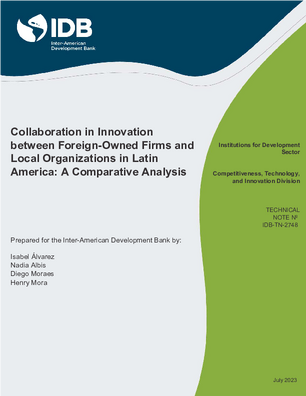Collaboration in Innovation between Foreign-Owned Firms and Local Organizations in Latin America: A Comparative Analysis
Date
Jul 2023
This paper explores patterns of collaboration in innovation between foreign firms and local partners in nine Latin American countries. Using microdata from the harmonized Latin American Innovation Surveys dataset (LAIS) and the Spanish Technological Innovation Panel (PITEC) for comparison, the approach considers factors at micro, meso, and macro-levels to identify and illustrate knowledge flows between local and foreign firms in host countries. The empirical evidence presented shows that technological strategies of foreign subsidiaries, sectoral innovation patterns, and national innovation conditions are key elements in shaping local innovation collaboration with foreign-owned firms. Nonetheless, micro and country-side effects still overshadow sector differences. This study indicates that when foreign investment is focused on creating and increasing the technological capabilities of an MNE, collaboration can strengthen the likelihood of positive knowledge spillovers in local economies. In the Latin American context, differences emerge depending on the types of partners engaged in collaboration, whether R&D, or other firms. National systems of innovation also come into play in defining collaboration patterns of foreign-owned firms, especially in systems with greater technological capabilities. This comparative perspective therefore provides new insights regarding attraction of foreign direct investment (FDI) and innovation policies in the region.




